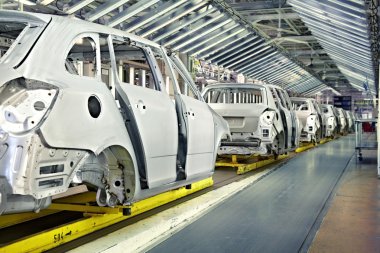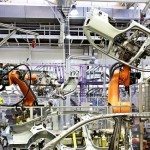As highlighted by Assembly Magazine in their article “The Growing Role of AI in Automotive Assembly,” artificial intelligence (AI) is reshaping the automotive manufacturing landscape, becoming as transformative as lean manufacturing was in the 1990s. Automakers and suppliers are racing to adopt AI technologies to improve efficiency, enhance quality control, and reduce errors across production lines.
AI Applications in Automotive Assembly
AI’s capabilities extend across various aspects of automotive manufacturing, including:
- Vision Systems for Adhesive Dispensing, Screwdriving, and Welding: AI-powered vision systems improve precision in critical tasks.
- Predictive Maintenance: Analyzing machine data helps anticipate maintenance needs, reducing unplanned downtime.
- Parts Inspection: Computer vision algorithms detect minute defects, increasing the accuracy of quality control.
- Digital Twins: Digital twin technology creates a virtual representation of physical processes, combining computational data with real-time factory data to optimize workflows.
Enhancing Quality Control
According to Ravi Kunju, chief product and strategy officer at Altair Engineering, AI helps predict optimal process parameters and detect inconsistencies in production. He notes that while less than 10% of factory machine data is currently utilized, AI can unlock significant potential for improvements in manufacturing processes.
Advanced sensors and machine learning systems are increasingly used to perform visual inspections of weld quality and assembly gaps, converting qualitative assessments into quantifiable metrics. By streamlining data acquisition and analysis, manufacturers can use reinforced learning to automate adjustments in real time, achieving greater precision and efficiency.
Future of AI in Automotive Manufacturing
Iu Ayala, CEO of Gradient Insight Ltd., emphasizes that computer vision algorithms have evolved to detect even the smallest defects in components, elevating quality standards to new heights. However, as Kunju points out, successful AI integration requires a cultural shift towards data-driven decision-making. Companies that adapt quickly will position themselves as industry leaders, while others risk falling behind.
Conclusion
AI is revolutionizing automotive manufacturing by enabling smarter quality control, predictive maintenance, and process optimization. Companies leveraging this technology can significantly improve margins, enhance vehicle quality, and streamline their operations.
Click here to learn more about May Conveyor’s capabilities and products.
Article with all rights reserved, courtesy of assemblymag.com.








